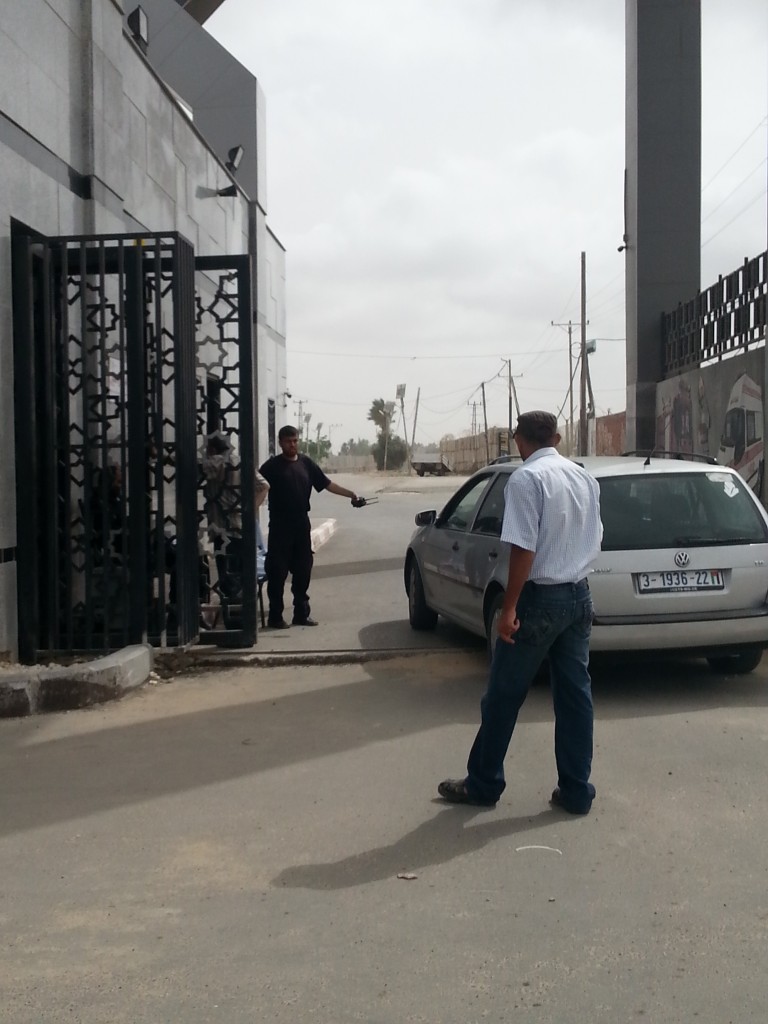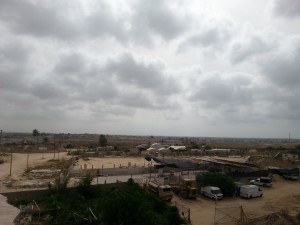One year on: Gazans feel the pain of being abandoned by Egypt
By Khaled Diab
Although the Israeli siege hurts Gazans more materially, the Egyptian blockade is more painful emotionally. It is also counterproductive.

Friday 24 July 2015
With all the paranoia and distrust in the air, many fellow Egyptians may well declare me temporarily insane for having ventured into the Gaza Strip, which I visited late last month. The Palestinian enclave is depicted by influential segments of the Egyptian media as a hornet's nest of terrorism and anti-Egypt sentiment.
But I'd like to reassure my compatriots that they can breathe a sigh of relief. This born and (partially) bred Egyptian made it in and out of Gaza in one piece, and has emerged – after seeing the destitution, destruction and psychological ruin there – more convinced than ever that the blockade imposed by Israel and Egypt must end.
In case any readers assume that I'm pro-Hamas or even pro-Muslim Brotherhood, let me make it clear from the outset that I am a committed secularist and a robust critic of Islamism and religious fundamentalism in all its forms. But as a rationalist, I take an evidence-based approach to reality. This means that I don't buy the popular conspiracy theories in Egypt about Gaza.
With a straight face, Egypt's pro-military media has been spreading numerous myths. These include reports that Hamas is behind the Sinai insurgency; that it aided and abetted Muslim Brotherhood rule in Egypt, including a spectacular prison break involving Mohammed Morsi before he became president; and that the blackouts and petrol shortages afflicting a country of 85 million inhabitants were caused because the Morsi regime supposedly diverted supplies to an impoverished territory of 1.8 million people.
But memories are short. In reality, Morsi was not as sympathetic to Gazans as is widely believed today. He continued his predecessor Hosni Mubarak's blockade policy, and even destroyed smuggling tunnels and worked to stop the flow of fuel into the Strip. In fact, Morsi was regularly praised in the Israeli press and by politicians, while being attacked by Hamas officials as crueller than Mubarak.
But Gazans are not the type to hold a grudge against Egyptians, regardless of what the Egyptian government does or doesn't do.
Although I was not afraid to enter Gaza, I was somewhat apprehensive about what kind of reception I would get from a population that had suffered so much under the Israeli-Egyptian blockade. But despite the criticism of Egypt I heard from pretty much everyone I met in Gaza, I was still the recipient of Gazans' famed hospitality and generosity – and I got to hear their nostalgic memories of the days when no border existed between Egypt and Gaza.
People in Gaza are generally bewildered and hurt by Egypt's participation in the blockade and the smears against them in the Egyptian media, which they feel adds political insult to the injury of living under siege. “Why is Egypt doing this to us?” was a common question I heard, and I had many long discussions on the subject.
Despite the hardship caused by Israel's wartime destruction of lives and property, as well as its land and sea blockade, Gazans tend to find Egypt's blockade more emotionally painful because they view Egypt as a traditional and staunch ally. “We regard Egyptians as our brothers, and we share a long history together,” one older, secular Gazan told me. “But Egyptians now regard us as Muslim Brotherhood.”
“For most people, their only exit is the Rafah crossing,” the deputy foreign minister of Hamas, Ghazi Hamad, told me. “When Egypt closes it, the Gaza Strip becomes a giant prison. It's like a cage.”

In Palestinian Rafah, from the rooftop of a destroyed building near the crossing, which has mostly been shut tight since Morsi's ouster in July 2013, Egyptian Rafah – with its newly leveled “buffer zone” – is visible mockingly in the distance, with its broken promise of relief and escape. Meanwhile, the network of tunnels that had provided just such relief and escape, as well as contraband weapons, lies collapsed under the ground.
By coincidence, the Rafah crossing was open during my visit, but only for three days and only for those coming from Egypt into Gaza. Meanwhile, more than 15,000 people were registered on a Hamas waiting list to go abroad, including the sick and wounded, and those with work or family commitments abroad; thousands more wait in the wings. “We have wounded people who have died because they couldn't get out from either Erez or Rafah to receive treatment,” Hamad told me told me. “You also have people who have lost their university placements.”
I met one of these academics, who returned to Gaza after last summer's war to check on his family and take them with him to Malaysia, where he planned to complete his doctorate in English literature. “The plan was to spend two or three months in Gaza, but almost nine months later, I am stuck and can't leave,” he told me at a beachside cafe, the frustration of limbo visible on his face. “If I had stayed, I could have finished my Ph.D. by now.”
“Egypt has to open Rafah, not as charity, but as a duty towards fellow human beings,” he added.
Beyond the humanitarian imperative, opening up Rafah has important geo-strategic benefits for Egypt. It is not in Egypt's self-interest to have an island of suffering and seething frustration on the border of the already restive Sinai region. In 2008, hundreds of thousands of Gazans breached the wall and entered Sinai. That time, they went shopping and peacefully returned to their homes. With the multiplied level of destitution, next time something like this happens, they may refuse to return.
But Egypt shouldn't view Gaza solely as a threat. Opportunities abound: Gaza's presence on its doorstep can actually help reduce the restiveness in Sinai by giving residents of the economically challenged peninsula a nearby export market.
Moreover, though nearly 170 times the size of Gaza, the sparsely populated Sinai is home to a third of the Palestinian enclave's population. An open economic area between the two could be a win-win for both sides.
____
Follow Khaled Diab on Twitter.
This is the extended version of an article which first appeared in Haaretz on 22 June 2015.


